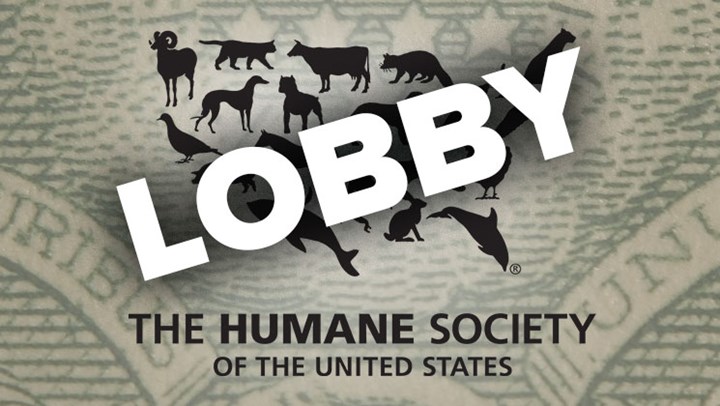
by Rose Bier - Saturday, August 26, 2017

With a federal judge noting in a recent ruling that the Humane Society of the United States (HSUS) is a lobbying organization, it may be time for the IRS to investigate how the organization is spending its tax-free dollars. The judge's assessment was made in court as the HSUS faced a lawsuit for breach of contract and fraud brought on by a former donor who claimed the HSUS wasn't upholding its end of the deal.
As reported by HumaneWatch.org, the HSUS had an agreement with Hiroshi Horiike, CEO of the Genlin Foundation and the World Dog Alliance to do promotional work, lobbying and screenings of its documentary exposing the dog meat trade in Asia in exchange for a $1 million donation. After screenings in San Francisco and Los Angeles fell through, and the HSUS failed to introduce legislation in Congress as promised, the Genlin Foundation sued in October 2015.
While U.S. District Judge John Kronstadt rejected Genlin’s motion for summary judgement and dismissed the suit, what the judge stated in his ruling is noteworthy: “HSUS is a lobbying organization. Its success is predicated on its ability to maintain and use relationships with lawmakers. Common sense shows that it has an interest in preserving those relationships. Therefore, this is not a sufficient basis to establish a triable issue as to the claimed breach.” But wait. As a 501(c)(3) organization, the HSUS is prohibited from being classified as a “lobbying organization.”
For those who may not know, 501(c)(3) organizations are exempt from federal income tax under section 501(c)(3) of the Internal Revenue Code and are restricted in how much lobbying activities they may conduct. The IRS website states that “no organization may qualify for section 501(c)(3) status if a substantial part of its activities is attempting to influence legislation.” Based on the court’s recent classification of the HSUS as a “lobbying organization,” one can’t help but assume more than a “substantial part” of its activities include such activities. But no assumptions are necessary as considerable evidence indicates that the HSUS’ 501(c)(3) status should be questioned.
In 2010, federal lawmakers complained to the IRS, calling for an investigation of the group over its amount of lobbying. In a letter to the IRS Exempt Organizations Director, U.S. Rep. Blaine Luetkemeyer wrote, “The attached information unquestionable demonstrates that the HSUS invests a substantial amount of time and money in political campaigns and attempts to influence specific legislation, a clear and direct violation of section 501(c)(3) of the Internal Revenue Code.” According to HumaneWatch.org, the fact that Lois Lerner, the IRS Exempt Organizations Director at the time, was a member of the HSUS could have been the reason congressional members’ complaints did not lead to further investigation.
For more information on the endless fraudulent ways of the HSUS, check out the following NRAHLF.org articles:E-mail your comments/questions about this site to:
[email protected]
